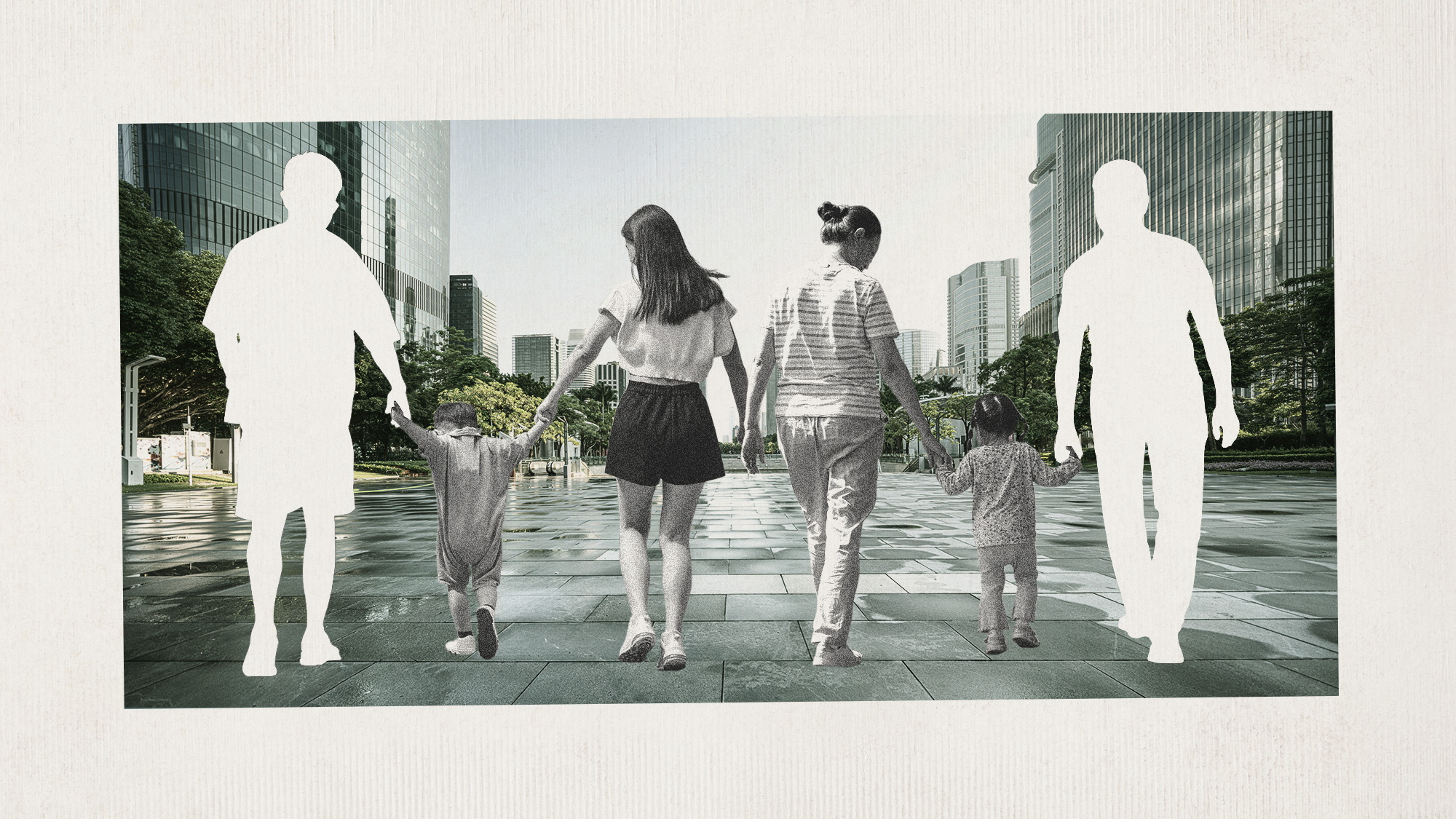Why China's young people are rejecting marriage
Changing attitudes and a slowing economy are contributing to a slump in weddings

A free daily email with the biggest news stories of the day – and the best features from TheWeek.com
You are now subscribed
Your newsletter sign-up was successful
China has recorded a drop in marriage registrations for the first nine months of 2024, heightening fears of a demographic crisis in the country.
Despite a "sweeping government campaign to boost matrimony and encourage births", said CNN, marriages and births are both "plummeting", posing a "major challenge" for China's leaders.
How much has it fallen?
Some 4.74 million Chinese couples registered their marriages in the first three quarters of 2024, according to the Ministry of Civil Affairs, a fall of 16.6% from the 5.69 million recorded in the same period last year.
The Week
Escape your echo chamber. Get the facts behind the news, plus analysis from multiple perspectives.

Sign up for The Week's Free Newsletters
From our morning news briefing to a weekly Good News Newsletter, get the best of The Week delivered directly to your inbox.
From our morning news briefing to a weekly Good News Newsletter, get the best of The Week delivered directly to your inbox.
The decline is "consistent with a falling trend" since the 2013 peak, when there were more than 13 million marriages, said CNN. It is in line with forecasts from demographic experts that marriages in 2024 will drop below 2022's record low of 6.83 million since records began around 1980.
Although there was a "rebound in marriages last year", this appears to be an "anomaly largely driven by pent-up demand" after Covid restrictions were lifted.
After its population shrunk for two years in a row, the birth rate in 2023 was the lowest since the founding of the People's Republic in 1949. In 2022, China was overtaken by India as the world's most populous nation.
What's behind the decline?
"Growing economic uncertainty and rising living costs" have "forced" many young couples to delay marriage, said Reuters. Getting married and starting a family has become a "heated subject" among young Chinese people, and many are choosing to wait because of "poor job prospects and worries about the future".
A free daily email with the biggest news stories of the day – and the best features from TheWeek.com
Fewer marriages mean fewer births because social norms and government rules in China make it "challenging for unmarried couples to have children", said CNN. So a growing number of young people are choosing to simply "eschew" marriage and parenthood entirely.
The "stubborn downward trend" particularly reflects changing attitudes among young women, who are becoming "more educated and financially independent" and are growing "disillusioned with marriage".
CNN also cited "decades of policies" designed to limit China's population growth, which have resulted in fewer young people of marriageable age, according to sociologists.
What is China doing about it?
China has been releasing a "slew" of measures to "bolster its sagging population levels", said Reuters.
When the southern city of Changsha launched "bold initiatives and slogans" to encourage marriage and boost birth rates, it ignited "widespread controversy", said the South China Morning Post.
Pink slogans displayed on a "marriage-themed" street featured phrases like "I enjoy making breakfast", "I'd be willing to take care of the baby", and "Having three children is the coolest".
From next year, Lüliang, North China's Shanxi Province, will offer a "cash reward" of 1,500 yuan (£162) to couples registering their marriage for the first time, as long as the woman is 35 years old or younger, said Global Times.
China's Civil Affairs University announced a new marriage programme to promote and develop marriage-related culture, reported The Independent. It sets out to "highlight China's positive marriage and family culture" but critics said it is "pointless".
Chas Newkey-Burden has been part of The Week Digital team for more than a decade and a journalist for 25 years, starting out on the irreverent football weekly 90 Minutes, before moving to lifestyle magazines Loaded and Attitude. He was a columnist for The Big Issue and landed a world exclusive with David Beckham that became the weekly magazine’s bestselling issue. He now writes regularly for The Guardian, The Telegraph, The Independent, Metro, FourFourTwo and the i new site. He is also the author of a number of non-fiction books.
-
 Bad Bunny’s Super Bowl: A win for unity
Bad Bunny’s Super Bowl: A win for unityFeature The global superstar's halftime show was a celebration for everyone to enjoy
-
 Book reviews: ‘Bonfire of the Murdochs’ and ‘The Typewriter and the Guillotine’
Book reviews: ‘Bonfire of the Murdochs’ and ‘The Typewriter and the Guillotine’Feature New insights into the Murdoch family’s turmoil and a renowned journalist’s time in pre-World War II Paris
-
 Witkoff and Kushner tackle Ukraine, Iran in Geneva
Witkoff and Kushner tackle Ukraine, Iran in GenevaSpeed Read Steve Witkoff and Jared Kushner held negotiations aimed at securing a nuclear deal with Iran and an end to Russia’s war in Ukraine
-
 The fall of the generals: China’s military purge
The fall of the generals: China’s military purgeIn the Spotlight Xi Jinping’s extraordinary removal of senior general proves that no-one is safe from anti-corruption drive that has investigated millions
-
 EU and India clinch trade pact amid US tariff war
EU and India clinch trade pact amid US tariff warSpeed Read The agreement will slash tariffs on most goods over the next decade
-
 China’s Xi targets top general in growing purge
China’s Xi targets top general in growing purgeSpeed Read Zhang Youxia is being investigated over ‘grave violations’ of the law
-
 The app that checks if you are dead
The app that checks if you are deadIn The Spotlight Viral app cashing in on number of people living alone in China
-
 Why Greenland’s natural resources are nearly impossible to mine
Why Greenland’s natural resources are nearly impossible to mineThe Explainer The country’s natural landscape makes the task extremely difficult
-
 Hong Kong court convicts democracy advocate Lai
Hong Kong court convicts democracy advocate LaiSpeed Read Former Hong Kong media mogul Jimmy Lai was convicted in a landmark national security trial
-
 How Bulgaria’s government fell amid mass protests
How Bulgaria’s government fell amid mass protestsThe Explainer The country’s prime minister resigned as part of the fallout
-
 China’s single mothers are teaming up
China’s single mothers are teaming upUnder the Radar To cope with money pressures and work commitments, single mums are sharing homes, bills and childcare